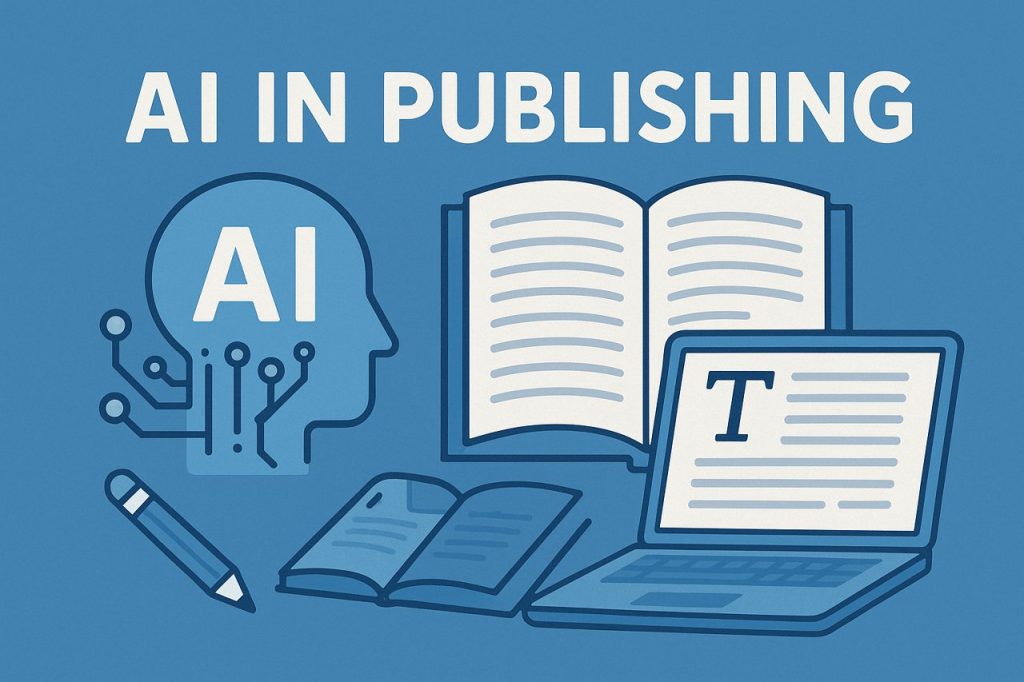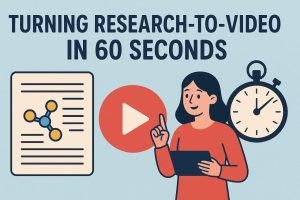Accessibility in academic publishing is rapidly transforming, largely thanks to advancements in artificial intelligence (AI). But how exactly is AI shaping this landscape, and what can publishers expect in the near future?
Why Continuous Innovation Matters
Accessibility isn’t a one-time fix; it’s an evolving journey. Technological advancements and changing user needs mean that accessibility strategies must adapt continuously. Publishers who embrace ongoing innovation are best positioned to meet future challenges and leverage emerging opportunities.
How AI Fuels Continuous Accessibility
AI-driven technologies are now central to continuous improvement in accessibility, significantly enhancing user experiences and inclusivity:
- Smarter Alt-Text Generation:
AI doesn’t just automate descriptions for images, it continuously learns from user interactions, becoming smarter and more contextually accurate over time. Future iterations of AI will provide even more precise and useful descriptions, helping visually impaired researchers effortlessly access complex research visuals. - Natural and Adaptive Text-to-Speech:
Today’s AI-powered text-to-speech tools already offer clear, natural-sounding narration. Ongoing advancements will soon enable these tools to detect and adapt to the listener’s preferences, such as speech pace, tone, or even emotional delivery, offering truly personalized audio experiences for every researcher. - Advanced Multilingual Capabilities:
As global collaboration increases, AI-driven translation and transcription services continuously improve, better capturing regional dialects, technical jargon, and cultural nuances. The future will likely see seamless multilingual interactions, breaking down communication barriers between researchers worldwide. - Tailored Content Summarization:
AI summarization tools currently deliver concise summaries for different audience types. As these tools evolve, they’ll get even better at creating personalized summaries tailored precisely to each user’s academic or professional background, significantly enhancing engagement and comprehension.
Blueprint for an Inclusive Digital Future
Publishers can actively shape an inclusive future by strategically leveraging AI. Here’s how to start:
- Build Flexibility into Your Platforms: Allow users to toggle easily between accessibility features like translations, summaries, and audio narrations.
- Collect and Act on User Feedback: Regularly engaging with users ensures that accessibility tools remain effective and relevant. User feedback helps AI-driven platforms continuously refine and evolve.
- Stay Ahead with Training: Publishers must continuously educate their teams about emerging technologies and accessibility trends. Investing in ongoing training ensures your team is always prepared to utilize the latest accessibility advancements.
Accessibility as a Strategic Asset
Accessibility isn’t merely about compliance; it’s about empowering everyone to contribute equally to scholarly research. Publishers who prioritize continuous innovation in accessibility gain multiple strategic advantages:
- Long-term User Engagement: Accessible platforms attract and retain a diverse global audience, creating a loyal user base.
- Robust Reputation: Publishers recognized for their inclusive approach will naturally lead the industry and foster trust among global academic communities.
- Future-Ready Infrastructure: Continual AI-driven innovation ensures that your platforms adapt proactively to future technological changes and regulatory updates.
Looking Ahead: A Vision for Inclusive Academic Publishing
Imagine a future where every researcher, regardless of language, ability, or location, has seamless access to scholarly content. AI-driven accessibility innovations are bringing this vision closer every day.
By embracing continuous improvement and strategically leveraging AI, publishers can ensure their platforms not only meet today’s needs but also remain adaptable, inclusive, and innovative for generations of researchers to come.
Download the whitepaper “AI and Accessibility in Publishing: Planting Seeds for an Equitable Future” to explore how accessibility is transforming the publishing world.









